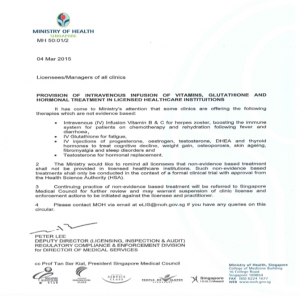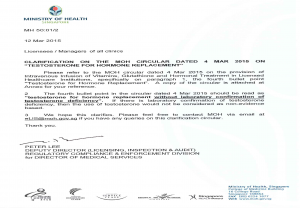The following entry is taken, with permission, from the blog of Dr Malcolm Kendrick, a GP in Macclesfield, UK, an original member of the Centre for Evidence Based Medicine in Oxford and of The International Network of Cholesterol Sceptics (THINCS). He describes his blog thus:
This blog is my best effort at providing some balance to the increasingly strident healthcare lobby that seems intent on scaring everyone about almost everything. Is there a foodstuff that is safe to eat anymore? Is there any activity that does not cause cancer or heart disease?
http://drmalcolmkendrick.org/about/
Is medical research now beyond redemption?
(Bolding by HCS)
Below, I have copied an entire article from the BMJ, written by Dr Des Spence, who is a fellow Scottish GP. We communicate from time to time, and share a general view that medicine is heading in a very unfortunate direction with overdiagnosis and over-treatment/polypharmacy becoming a massive problem.
This is driven, in the main part, by the pharmaceutical industry. An industry that would like to see the entire population of the world taking medication every day….. forever. To achieve this they have, effectively, grabbed hold of medical research and twisted it to their own ends.
Anyway, please read this article. It encapsulates much of what I feel, and I believe it needs a wider audience [I have added a few comments into the text to ensure that I am not breaching copyright]
Evidence based medicine (EBM) wrong footed the drug industry for a while in the 1990s. We could fend off the army of pharmaceutical representatives because often their promotional material was devoid of evidence. But the drug industry came to realise that EBM was an opportunity rather than a threat. Research, especially when published in a prestigious journal, was worth more than thousands of sales representatives. Today EBM is a loaded gun at clinicians’ heads. “You better do as the evidence says,” it hisses, leaving no room for discretion or judgment. EBM is now the problem, fuelling overdiagnosis and overtreatment.
[This is now a major problem for GPs who are increasingly measured and monitored, and funded, according to how accurately we follow guidelines mk comment] [And in some cases in Singapore, barred from running their practices. HCS]
You see, without so called “evidence” there is no seat at the guideline table. This is the fundamental “commissioning bias,” the elephant in the room, because the drug industry controls and funds most research. So the drug industry and EBM have set about legitimising illegitimate diagnoses and then widening drug indications, and now doctors can prescribe a pill for every ill.
[As you can imagine, this makes it difficult not to prescribe statins mk comment]
The billion prescriptions a year in England in 2012, up 66% in one decade, do not reflect a true increased burden of illness nor an ageing population, just polypharmacy supposedly based on evidence. The drug industry’s corporate mission is to make us all sick however well we feel. [Absolutely true mk comment] As for EBM screening programmes, these are the combine harvester of wellbeing, producing bails of overdiagnosis and misery.
Corruption in clinical research is sponsored by billion dollar marketing razzmatazz and promotion passed off as postgraduate education. By contrast, the disorganised protesters have but placards and a couple of felt tip pens to promote their message, and no one wants to listen to tiresome naysayers anyway.
[Speaking as a tiresome naysayer, I could not agree more mk comment]
How many people care that the research pond is polluted, with fraud, sham diagnosis, short term data, poor regulation, surrogate ends, questionnaires that can’t be validated, and statistically significant but clinically irrelevant outcomes? Medical experts who should be providing oversight are on the take. Even the National Institute for Health and Care Excellence and the Cochrane Collaboration do not exclude authors with conflicts of interest, who therefore have predetermined agendas. The current incarnation of EBM is corrupted, let down by academics and regulators alike.
[If anyone has any suggestion how to improve regulation, please let me know mk comment]
What do we do? We must first recognise that we have a problem. Research should focus on what we don’t know. We should study the natural history of disease, research non-drug based interventions, question diagnostic criteria, tighten the definition of competing interests, and research the actual long term benefits of drugs while promoting intellectual scepticism. If we don’t tackle the flaws of EBM there will be a disaster, but I fear it will take a disaster before anyone will listen.
[There have already been many disasters, but nobody has yet listened mk comment]
Original article can be found here
Sorry about the intrusive comments, but I don’t want the BMJ jumping up and down on me – especially as they are the only major journal that seems keen to criticize the industry.
What Des Spence is saying, is what I have been saying for some time now. Evidence Based Medicine (EBM) could have been a great thing – so long as it was not enforced too rigidly. But the evidence has been manipulated and corrupted all the way along the line. EBM is now almost completely broken as a tool to help treat patients.
Some years ago I stated that I no longer believe in many research papers that I read. All I tend to do is look at the authors, look at the conflicts of interest, look at the companies who sponsored the study, and I know exactly what the research is going to say – before I have even read the paper.
I have also virtually given up on references. What is the point, when you can find a reference to support any point of view that you want to promote? Frankly, I do not know where the truth resides any more. I wish to use evidence, and the results of clinical studies, but I always fear that I am standing on quicksand when I do so.
We are at a crisis point. Medical research today (in areas where there is money to be made) is almost beyond redemption. If I had my way I would close down pubmed, burn all the journals, and start again, building up a solid database of facts that we can actually rely on – free from commercial bias. But this is never, ever, going to happen.
Note from HCS:
Dr Kendrick’s latest book, “Doctoring Data”, to be officially launched this year, is available at http://doctoringdata.co.uk/
After reading this book you will know what to believe and what to ignore. You’ll have a much better understanding of the world of medical research. A world in crisis.


